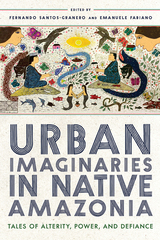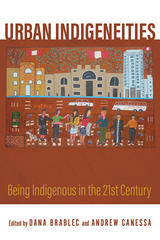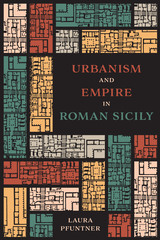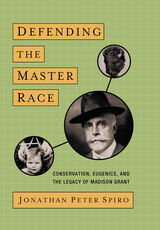
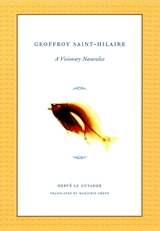
This was a revolutionary idea—and one vigorously opposed by Geoffroy's colleague Georges Cuvier, a great anatomist and one of the giants of French science. In 1830, their long-running disagreement erupted into furious public debate. Geoffroy argued that all vertebrates shared the same basic body plan not just with each other but with insects as well. Cuvier strenuously disputed this idea, which he saw as tantamount to a belief in "transformism"—arguing instead that each species had its own special and permanent form.
With Geoffroy Saint-Hilaire, Hervé Le Guyader provides an analysis not only of that infamous debate but also of Geoffroy's bold intuitions about anatomy and development. Featuring Geoffroy's published version of the 1830 debates—translated into English for the first time—the book also illustrates how Geoffroy's prescient insights foreshadowed some of the most recent discoveries in evolutionary and developmental biology.

In 1983, zoologist Alan Rabinowitz ventured into the rain forest of Belize, determined to study the little-known jaguar in its natural habitat and to establish the world's first jaguar preserve. Within two years, he had succeeded. In Jaguar he provides the only first-hand account of a scientist's experience with jaguars in the wild.
Originally published in 1986, this edition includes a new preface and epilogue by the author that bring the story up to date with recent events in the region and around the world.
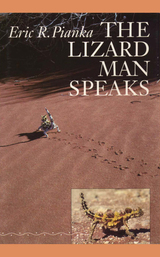
Alone on the endless red-sand desert in the Australian outback, tracking Varanus giganteus, the perentie lizard that grows to be more than six feet long...for desert rat Eric Pianka, such adventures have led to a satisfying, if unusual, way of life, as well as a distinguished career as a field biologist.
In The Lizard Man Speaks, Pianka recounts more than thirty years of adventures in reptile studies. He tells of "lizarding" in the North American deserts, the Kalahari Desert of southern Africa, and the Great Victoria Desert in Western Australia. His vivid imagery draws the reader into a world where lions lurk in the darkness beyond a gecko hunter's lights, where being stranded by car trouble miles from the last outpost is a constant danger, and where the wilderness still deserves to be called wild.
Along the way, Pianka provides much general information about lizard ecology, the fire succession cycle, and the interaction of humans with the landscape. And he reveals the springs of his own determined spirit and love of solitude, describing a near-fatal boyhood accident and its shaping and character-building effect on the life that followed.
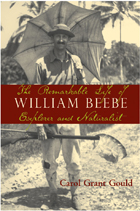
When William Beebe needed to know what was going on in the depths of the ocean, he had himself lowered a half-mile down in a four-foot steel sphere to see-five times deeper than anyone had ever gone in the 1930s. When he wanted to trace the evolution of pheasants in 1910, he trekked on foot through the mountains and jungles of the Far East to locate every species. To decipher the complex ecology of the tropics, he studied the interactions of every creature and plant in a small area from the top down, setting the emerging field of tropical ecology into dynamic motion.
William Beebe's curiosity about the natural world was insatiable, and he did nothing by halves. As the first biographer to see the letters and private journals Beebe kept from 1887 until his death in 1962, science writer Carol Grant Gould brings the life and times of this groundbreaking scientist and explorer compellingly to light.
From the Galapagos Islands to the jungles of British Guiana, from the Bronx Zoo to the deep seas, Beebe's biography is a riveting adventure. A best-selling author in his own time, Beebe was a fearless explorer and thoughtful scientist who put his life on the line in pursuit of knowledge. The unique glimpses he provided into the complex web of interactions that keeps the earth alive and breathing have inspired generations of conservationists and ecologists. This exciting biography of a great naturalist brings William Beebe at last to the recognition he deserves.
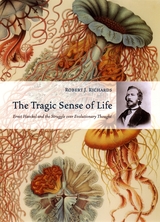
Prior to the First World War, more people learned of evolutionary theory from the voluminous writings of Charles Darwin’s foremost champion in Germany, Ernst Haeckel (1834–1919), than from any other source, including the writings of Darwin himself. But, with detractors ranging from paleontologist Stephen Jay Gould to modern-day creationists and advocates of intelligent design, Haeckel is better known as a divisive figure than as a pioneering biologist. Robert J. Richards’s intellectual biography rehabilitates Haeckel, providing the most accurate measure of his science and art yet written, as well as a moving account of Haeckel’s eventful life.
READERS
Browse our collection.
PUBLISHERS
See BiblioVault's publisher services.
STUDENT SERVICES
Files for college accessibility offices.
UChicago Accessibility Resources
home | accessibility | search | about | contact us
BiblioVault ® 2001 - 2025
The University of Chicago Press



